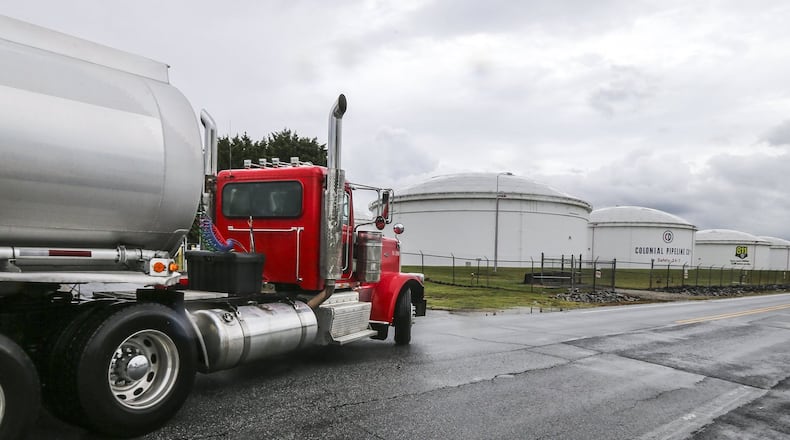Prices have leveled out, but finding the gas you need can be a challenge still – especially if you are on your way back to Florida.
More than 560 service stations in metro Atlanta – nearly 14 percent – were out of fuel mid-Tuesday, and other stations along the route south were also struggling, according to a survey by Gas Buddy, said Patrick DeHaan, senior petroleum analyst.
“There are a lot of challenges for motorists,” he said. “We are seeing a lot of outages.”
The situation was even more dire in Florida. More than 40 percent of the stations are out of fuel in most major cities there, he said.
The average price for gasoline in metro Atlanta was $2.80 a gallon, Tuesday afternoon, according to Gas Buddy.
That is far below the region’s peak of $4.11 a gallon in 2008, but it is about 57 cents-a-gallon higher than it was three weeks ago. It is also about 18 cents a gallon above the national average.
And it probably isn’t dropping anytime soon, said Mark Jenkins, spokesman for AAA. “Retailers will not be in a big hurry to lower prices for a number of reasons. Unfortunately for motorists in the southeastern U.S., they may not see prices move lower until Hurricane Irma is long gone.”
But at least the Atlanta price has not increased more in recent days, despite the pounding that Irma gave to the southeast, first as a massive hurricane and then – as it moved through Georgia — as a tropical storm.
One reason that the price hasn’t spiked further is that, unlike the disruptions caused several weeks earlier by Hurricane Harvey along the Texas coast, Irma had virtually no impact on fuel production and little lingering impact on deliveries.
Instead, the shortages are created by about surges in demand – the drivers hoping for a return to Florida, as well as the steady increase of people going back to work as the storm passes.
“The distribution system is functioning,” DeHaan said. “I would say that demand is outpacing the rate that stations can replenish.”
In Georgia, the situation is better than Florida, but hardly normal.
Savannah has the tightest market, with 29 percent – nearly one in three – stations out of fuel.
In Augusta and Albany, roughly one of every five stations were without fuel. About 14 percent of the stations in Macon were out.
The wholesale price for fuel – the price paid by the retailers who sell to consumers – crested last week and has been coming down. So prices in metro Atlanta over the next few days should stay steady and then start to decline, DeHaan said.
The retailers had to pay the higher price, he said. “And once the retailers have passed long the increases, there is no reason for the prices go up further.”
Moreover, once a state of emergency has been declared – as in Florida and Georgia – retailers face penalties for raising prices dramatically. That may create an incentive to be cautious about lowering prices, said AAA’s Jenkins.
Experts warn that the roads south are likely to be crowded and that there may be long lines at many stations.
It’s not a good idea to wait until the last minute to start looking for an open station, Jenkins said. “Do not let your fuel gauge fall below a quarter tank before you start looking for a place to refuel.”
About the Author
Keep Reading
The Latest
Featured



